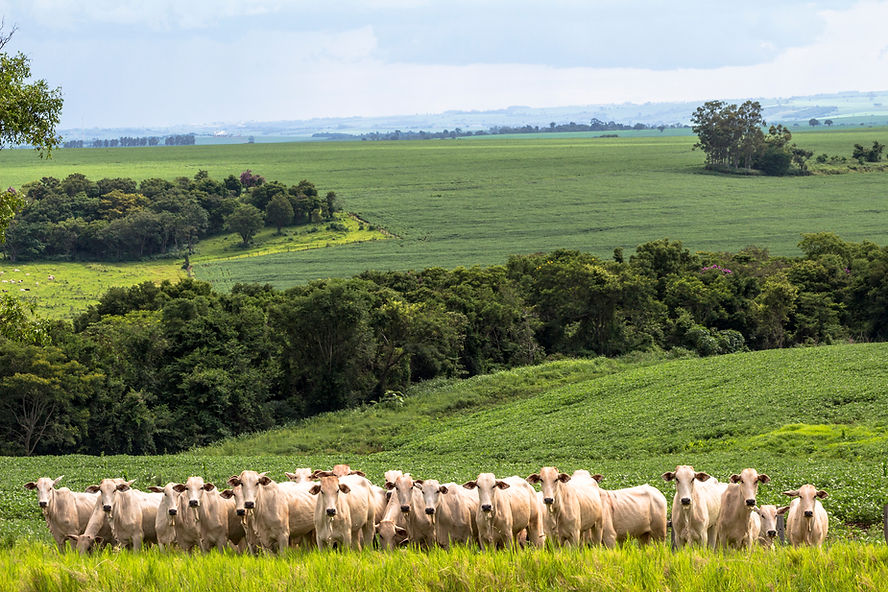
We believe that animal welfare is one of the most valuable practices, as it is the reflection of our attitudes that will be on our tables every day.

Animal Welfare
Beauvallet Brasil values and encourages its producer partners to adopt good animal welfare practices.
Animal welfare is a concept that refers to the conditions in which animals live, ensuring that they are free from suffering, stress and unnecessary pain.
In the bovine segment, this care covers all stages of the animal's life, from birth, breeding, transport to the moment of slaughter.
To ensure animal welfare, practices such as a balanced diet, access to clean water, adequate space for movement, humane handling, and constant veterinary care are essential. Furthermore, it is essential that transportation and slaughter be carried out ethically, minimizing stress to the animals.


Importance for meat quality
Animal welfare directly impacts beef quality. When animals are subjected to stressful situations—such as improper handling, overcrowding, substandard transportation, or inhumane slaughter—the body releases hormones such as adrenaline and cortisol. These hormones affect muscle metabolism, resulting in meat with elevated pH, abnormal texture, and dark coloration, which compromises flavor, juiciness, and tenderness.
Furthermore, meat from animals that have undergone stress tends to have a shorter shelf life and is less attractive to the end consumer. On the other hand, well-treated animals produce higher-quality meat, which is more widely accepted in the market, adding value to the final product and reinforcing the brand's positive image.

Humane slaughter
Beauvallet Brasil carries out the humane slaughter and stunning of all animals, except those destined for specific markets with religious precepts (Hallal).
The batches of animals received are accompanied by a Producer's Declaration and a Letter of Guarantee confirming the non-use of hormones and antibiotics as growth promoters.
All batches must be accompanied by documentation containing information about the animals to be slaughtered, such as the administration of medication and the absence of the use of certain antiparasitic drugs.
Any use of antibiotics must be recorded and reported to Beauvallet, with clinical use only permitted in the event of an animal's health condition.
Prophylactic and metaphylactic use is not recommended. Furthermore, chemical residue and contaminant control is carried out within the industry through post-slaughter sample collection, which is then sent for laboratory testing to meet the requirements of various markets and ensure a safe product.
Transporte do gado
To express Beauvallet Brasil's commitment and ensure that animal welfare principles are applied at all stages of pre-slaughter handling, we also raise awareness among livestock farmers and provide training to all professionals, both direct and third parties, who handle live cattle and cattle truck drivers.
The corporate Quality, Livestock Purchasing and Sustainability teams are also frequently trained through lectures, workshops and national conferences.
This way, we ensure the quality of the procedures and guarantee that the transport will take place safely and always prioritizing the well-being of the animals.


Animal Welfare Handbook for Producers
To support livestock suppliers in implementing animal welfare, quality, and sustainability procedures, Beauvallet Brasil has developed a booklet on good practices and the five Freedoms of Animal Welfare:
Freedom from hunger and thirst
Continuous access to clean water and adequate food in quality and quantity.Discomfort-free
Shelter from bad weather (heat, cold, rain), clean, ventilated facilities with sufficient space.Freedom from pain, injury and disease
Rapid prevention and treatment of diseases, careful management and veterinary monitoring.Free to express natural behavior
Environment that allows movement, grazing, social interaction and instinctive behavior.Free from fear and stress
Calm handling, without shouting, shocks or physical aggression; humane transport and slaughter.

_edited.png)